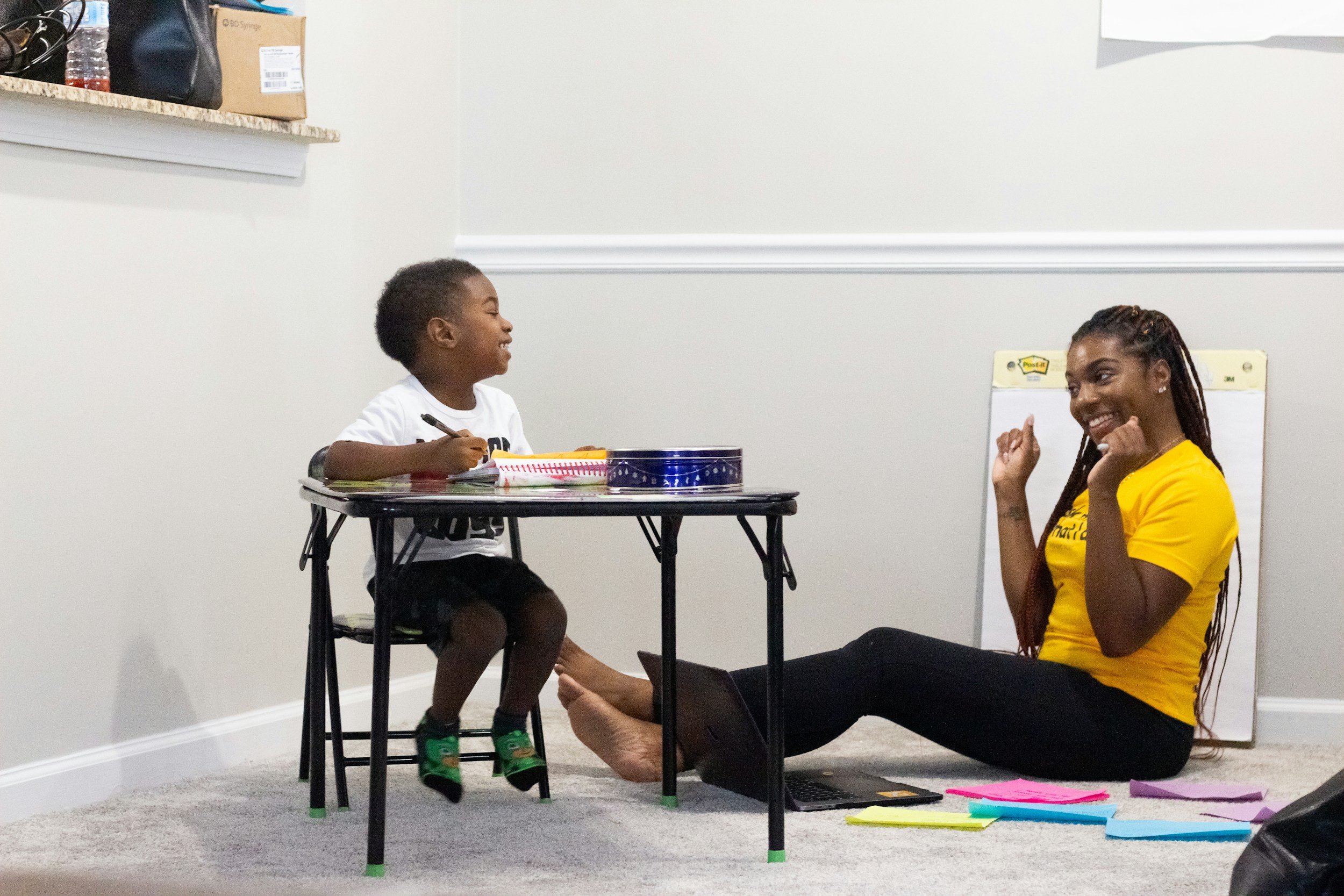
Child-Parent Relationship Therapy
A Play-Based Counseling Approach to Help You Reconnect with Your Child
You never imagined parenting would feel this hard.
The outbursts. The shutdowns. The constant battles over even the smallest things. You find yourself walking on eggshells, trying to avoid another meltdown—and nothing you try seems to help. You’ve read the books, tried the time-outs, the reward charts, the soft voice, the firm voice—and still, your child seems more disconnected, anxious, or angry than ever.
It’s exhausting.
You’re worried, confused, and grieving the loss of the connection you used to share. You miss the giggles, the cuddles, the playful moments that made all the chaos worth it. Now it feels like you’re stuck in survival mode, and no one sees how hard you’re trying. You love your child deeply, but you don’t know how to reach them.
And when you finally have a quiet moment to yourself, you wonder, “Is it me? Am I failing at this?”
What You’re Experiencing Is More Common Than You Think
And it’s not a sign that you’re a bad parent. It’s a sign your child needs help reconnecting—and you do, too.
Many parents seek support when their young child is struggling with:
Tantrums, aggression, or intense mood swings
Withdrawal, anxiety, or refusal to communicate
Difficulty adjusting to family transitions or trauma
Challenges forming healthy bonds with caregivers
Trouble following directions or respecting limits
Big feelings that seem to come out of nowhere
These behaviors often point to deeper emotional or relational needs. And while it may seem like your child is pushing you away, the truth is—they’re asking for you in the only way they know how.
A Therapeutic Approach that Brings Healing Through Connection
Child-Parent Relationship Therapy (CPRT) is a research-based, play-focused counseling approach that’s designed to help parents of children ages 3–8 who are showing signs of emotional, behavioral, or attachment challenges.
What makes CPRT different is that you, the parent, are the change agent. Instead of sending your child to therapy alone, CPRT gives you the tools to connect and heal together. It strengthens your bond and equips you with powerful strategies that create safety, trust, and emotional regulation through the power of play.
What to Expect from CPRT in San Antonio and Schertz
When we work together, you will:
Rebuild emotional connection with your child in a nurturing way
Understand the root of your child’s behavior, not just react to it
Learn how to use play to increase emotional safety and trust
Strengthen your confidence as a parent and decision-maker
Reduce tantrums, meltdowns, and disconnection
Create more peace, joy, and cooperation at home
This isn’t about being the “perfect parent.” It’s about being present, connected, and supported as you grow together.
At HOPE, we walk with you through this process, providing personalized coaching and guidance so that what you’re learning in therapy becomes part of the everyday rhythm of your relationship. You’ll see your child begin to soften, open up, and feel safe again—and you’ll begin to trust yourself again, too.
You Don’t Have to Stay Stuck in a Survival Mode of Parenting
We can help you reconnect and rediscover joy in your relationship with your child.
Through CPRT, you’ll find new ways of seeing your child, responding to their needs, and nurturing your bond with intention. You don’t have to do this alone—and the change you’re hoping for is possible.


